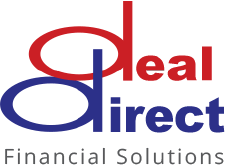Customer Overview
A 40-something professional based in the UK recently sought a financial solution to reduce stress and regain control over her financial future. Although all debt repayments were being made on time, she wanted to eliminate her high-interest credit card balances and raise funds for further home improvements—without adding to her monthly commitments or accruing further unsecured debt.
Primary Challenge: Escaping the Burden of High-Interest Debt
The customer had accumulated £15,990 in credit card debt, with interest rates as high as 35% on one card. The balances had mostly resulted from home improvement expenses, spread across two major credit cards. Despite comfortably managing the repayments of £479 per month, she wanted to:
- Avoid the long-term impact of high interest charges
- Prevent future reliance on unsecured debt for upcoming repairs
- Maintain financial health to support future mortgage applications
After experiencing a credit issue in the past, she also understood how easily finances can spiral, even when things appear manageable on the surface.
The Debt Consolidation Remortgage Solution
Working with experienced mortgage advisors, she was offered a debt consolidation remortgage with a new lender offering a competitive interest rate. This allowed her to:
- Roll the £15,990 of debt into her mortgage
- Raise additional funds for completing home improvements
- Keep monthly repayments manageable
- Reduce her overall mortgage term by a year to 25 years
The consolidation saved her £2,822.90 compared to keeping the debts independent. Plus, her net disposable income increased by nearly £493 per month, giving her the flexibility to build savings and make voluntary mortgage overpayments later.
Cost Breakdown
- Total Credit Card Debt: £15,990
- Cost if Debts Remained Unconsolidated: £33,044 (repayment across 5–6 years)
- Cost if Consolidated into Mortgage: £30,221.10 (over full mortgage term)
Why the Debt Consolidation Mortgage Was the Best Choice
The customer was clear that her goal wasn’t just to save on repayments—it was about gaining peace of mind and protecting her financial future. The remortgage allowed her to:
- Simplify multiple high-interest debts into one lower-interest mortgage
- Free up household income to build emergency savings
- Avoid extra credit borrowing that could strain future affordability checks
- Maintain control by keeping only priority debts within the remortgage and separately handling others
She was especially reassured by keeping her repayment term slightly shorter, which aligned with her plan to aggressively pay off the mortgage in later years through overpayments.
Customer Testimonial
“I’m really happy with the new mortgage option—everything feels more manageable and less risky. Knowing that I’ve cleared my highest-interest debts and don’t have to take on extra borrowing just to finish my home improvements is a huge relief.” — Satisfied Homeowner, UK
FAQs
Can you remortgage to consolidate debt?
Yes. If you have enough equity in your home, you can remortgage to roll existing unsecured debts, like credit cards or loans, into your mortgage. This usually offers lower monthly payments and interest rates.
Will remortgaging to pay off debt increase my total repayment?
Potentially, yes. While your monthly payments may decrease, you’re extending the debt over a longer period, which can increase the total amount repaid over the mortgage’s full term.
How much can I save monthly by consolidating credit card debts into a mortgage?
This varies based on your debt level and new mortgage terms. In this case, the customer saw an increase in disposable income of around £492.91 per month.
Does remortgaging affect my credit score?
It can slightly lower your score in the short term due to a hard credit check. However, clearing unsecured debts can significantly improve your credit profile over time.
What documents are required for a remortgage application?
Typically, you’ll need proof of income (e.g., payslips), proof of ID, recent bank statements, a list of debts to consolidate, and details of your current mortgage.
Can I repay a fixed-rate mortgage early without penalties?
Most fixed-rate mortgages have early repayment charges (ERCs). Always check your lender’s terms. Some lenders allow overpayments up to a certain limit each year without penalty.
Take Control of Your Finances Today
If you have high-interest debts and want to explore how a debt consolidation mortgage could work for you, our advisors are here to help. We’re committed to finding tailored solutions that protect your credit profile, reduce monthly outgoings, and offer the financial flexibility you need.
Get a free consultation today—gain peace of mind and unlock your financial freedom.
Ready to apply or see your best options?
Find your best deals online in minutes or request a no-obligation callback from one of our expert advisors to talk through your options or just get honest advice.






